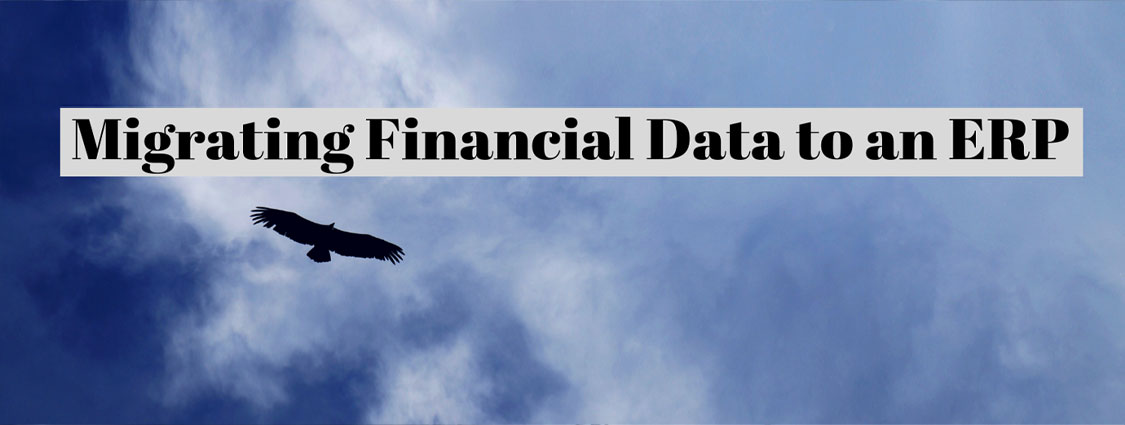Manufacturers, by the very nature of their business, are continually making adjustments. Some days they’re…

Migrating Financial Data to an ERP
One of the most challenging tasks in setting up a new ERP is migrating your financial data. Many software vendors recommend to only bring over your master data (e.g. accounts, contacts, items, etc.), trial balances, open transactions, and current inventory counts. While this might allow you move forward with your new ERP, it provides little or no insight into your historical financials. It also requires you to keep your old system ready and available to obtain detailed financial reports or pull up a transaction created in the old system. This can become a costly endeavor, especially if you are migrating from one cloud environment to another. Your financial data now lives in two separate systems – not an ideal scenario.
It can be quite costly to perform a full transactional migration between financial systems (e.g. invoices, payments, credits, journal entries, bills, sales orders, purchase orders, shipping/fulfillment, receiving, inventory transfers, credit card transactions, bank deposits, etc.). Many financial systems make it difficult to obtain the data, and it may only be accessible through an API, requiring a developer to perform the extractions. Even if you can export the data out, it must be transformed and converted into a format the new system will understand. And the new system may require use of an API to get the data imported. Often you need to hire a developer to do this, and you are going to need someone experienced with your new ERP so that they understand how the data needs to be transformed. These developers can cost anywhere from $125-$195/hour, and it may take tens to hundreds of hours to complete. This equates to tens of thousands of dollars.
At EIS, we’ve developed a migration tool that automates the conversion of QuickBooks financial data into Acumatica. Offered as a service, we can connect to your QuickBooks online account or your QuickBooks company file, extract all the master data and transactional data, transform it, and load it into Acumatica. This can be completed within just a few days. Our migration tool has an automated and repeatable process that helps ensure quality and data integrity; this eliminates human error that is often introduced with manual migrations (e.g. import/exports and spreadsheets) or custom migration code written by a developer. We also have a method to validate of your trial balances for each month of transactional data imported, ensuring that all data is posting to the general ledger correctly. We can even perform delta migrations if necessary.
By migrating all your QuickBooks data into your new ERP, you can instantly see the benefits of the reporting and search capabilities that your new ERP offers. You no longer need to maintain two systems to access historical records. You can provide your users with access to the data they need, both current and historical. It’s an ideal scenario and we offer our migration service at a fraction of the cost of hiring a developer to migrate your financial data.



